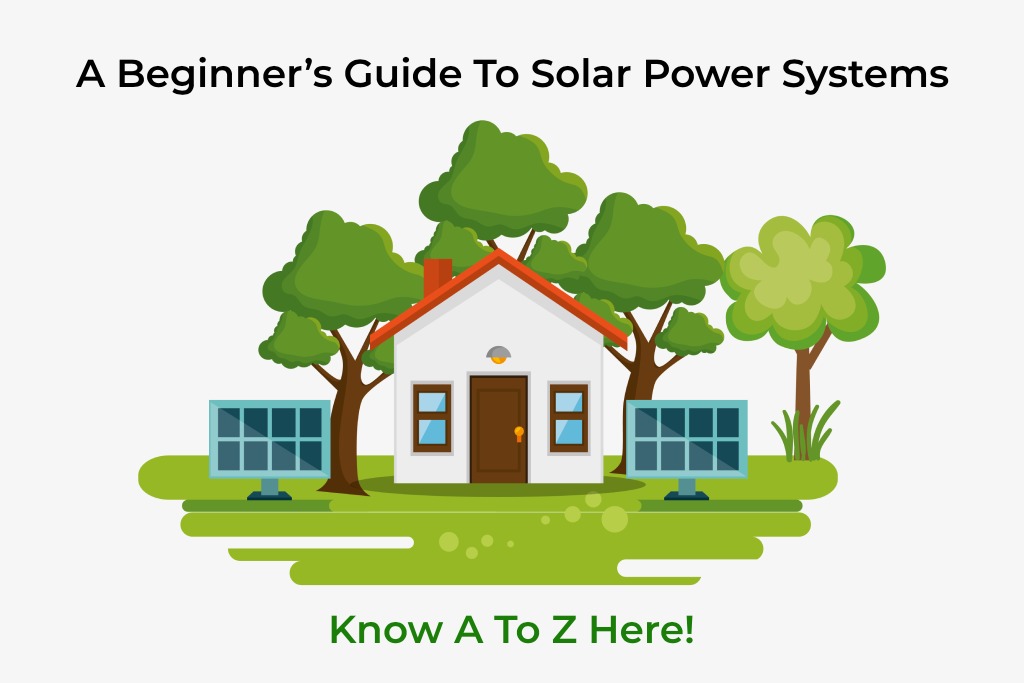Introduction
Solar energy has been around for a long time. It’s what powers your phone and computer, but it hasn’t always been so popular. Is solar power still too expensive? Is it not worth the investment? How does solar power work in the first place?
Those are all questions that you may have asked yourself, and we’re here to tell you that in today’s world, these are some of the most important questions that you have to ask yourself when deciding whether or not to go solar! Let’s explore what solar is, how it works, and take a look at the many different types of systems available on the market.
What is a solar power system?
An off-grid solar power system is precisely what it sounds like. It’s a system that is used with no existing power connection from the grid, so you’re literally “off-grid”. That word, however, can lead to confusion, as many people might automatically assume that an off-grid solar power system means no access to electricity whatsoever. In fact, the opposite is true – you get full access to electricity, just not over your home’s traditional electrical grid. Using sustainable energy sources allows you to live in harmony with nature and the planet itself. You don’t have to cut off your electricity or go off-grid in order to make the switch.
For those who already have a grid power line, you can get an on-grid/off-grid hybrid system, which is different from the off grid systems in that it connects with the existing utility provider. An on-grid system will link up to your electrical utility provider and receive power from their line. On-grid systems do not rely on batteries (although they can use them) – they work completely on a grid connection to ensure that you are still able to be connected with your utility provider.
How does the solar power system work?
A solar power system works by harnessing the sun’s energy. Whether it be a simple solar lantern, a complicated on-grid hybrid power unit, or anything in-between, all systems have one thing in common – they must transfer the energy from the sun to the user. The sun’s energy can be harnessed with solar panels that are placed on top of your home or business. They convert sunlight into electricity which can then be used to power your household appliances, or even provide electricity for your entire home or business.
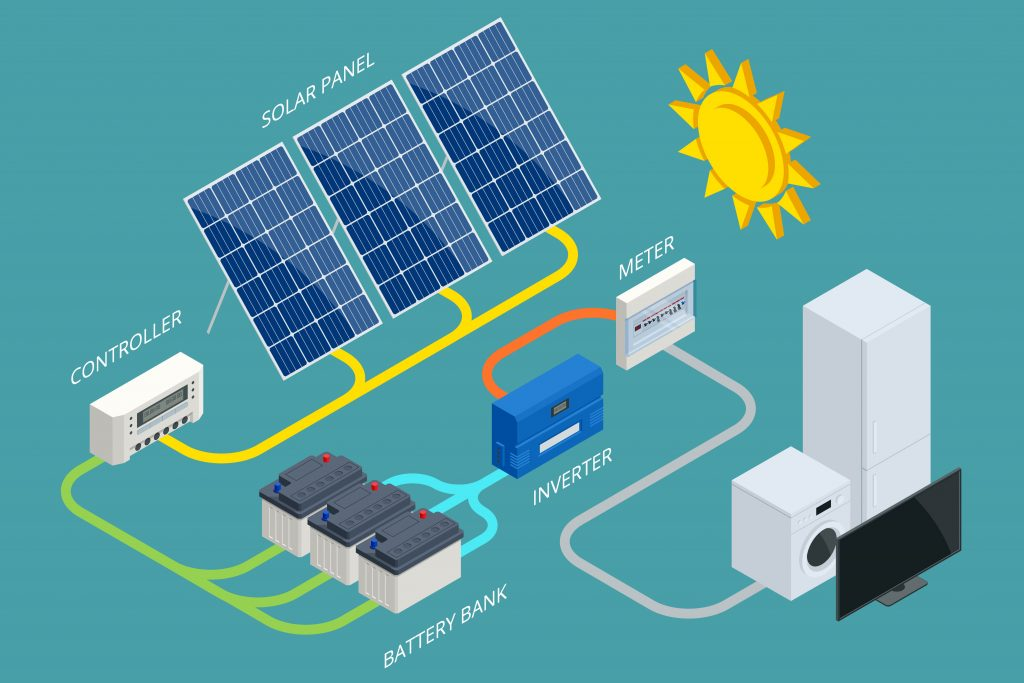
A solar panel is made up of many different small cells – called photovoltaic cells (PVCs) – and each cell is capable of generating around 0.5 volts. Multiply that by a few thousand cells, and you have a significant amount of electricity!
How do solar panels work?
The sun’s energy is converted into electricity with solar panels. In the case of on-grid systems, this allows you to access electricity from your utility provider. With off-grid systems, it harnesses the sun’s energy for use entirely by you, for as long as there is sunlight around. Many people are under the misconception that solar power only works during the day. This is not true at all! Solar panels can harness energy during the day and at night: they’re able to use both direct and reflected light to generate power.
Types of solar power grids
There are a few different types of solar power grids. Let’s learn about them below:
1. On-grid:
On-grid systems work perfectly fine in locations where there is a true grid connection to an electrical utility system. They are connected directly to the grid and receive power from it through the cables themselves. This allows you to still have electricity at your premises, but without having to be completely off-grid.
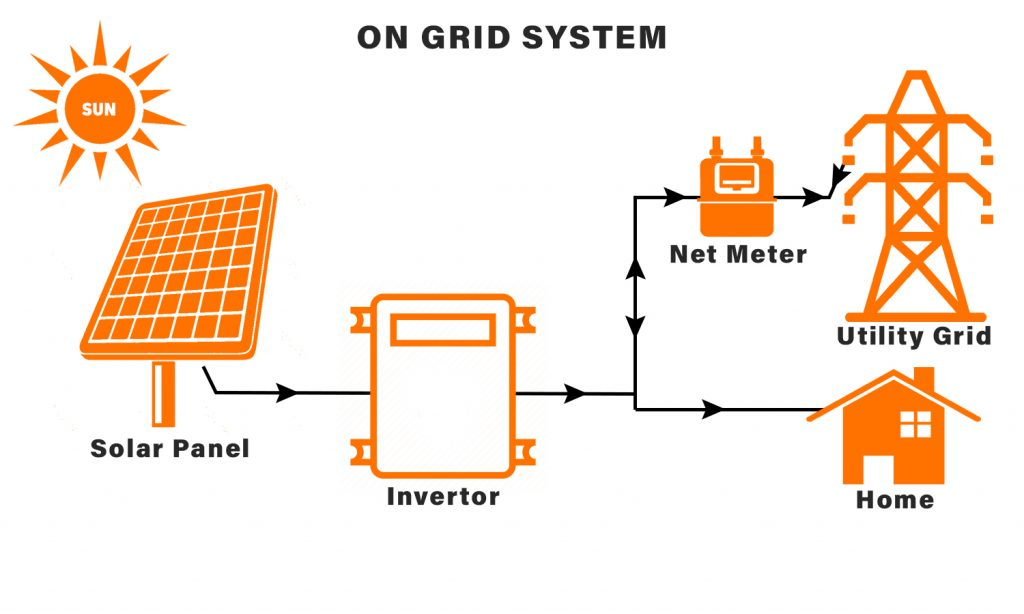
2. Off-grid:
Off-grid systems harness the sun’s energy entirely by themselves and do not connect with the traditional grid. Off-grid solar panels are typically used in areas that don’t have a connection to an electrical utility system, such as rural areas or islands. They can also be used for entirely off-grid applications – including areas where there is excess energy that can be stored for later use. For example, you may choose to harness the sun’s energy in your home or business, and when you’re producing more power than you need at the time, it will be stored and used later when it’s needed.
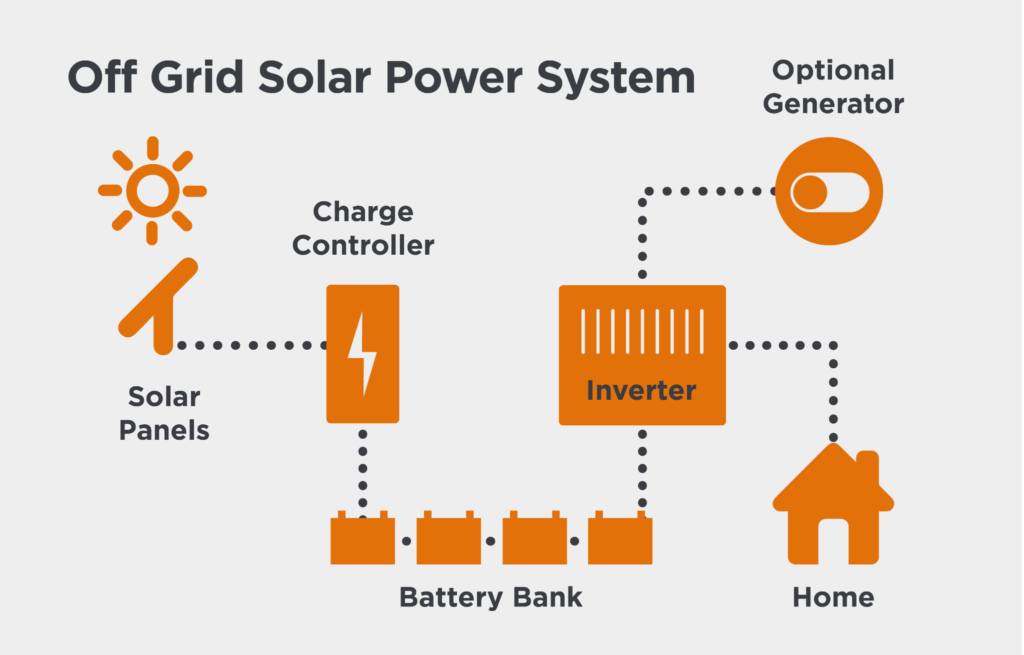
3. Hybrid:
Hybrid systems work on-grid or off-grid depending on your preference. A hybrid system can be used as a backup for an existing grid connection, or it can be completely off-grid if desired. The big difference between hybrid systems and off-grid systems is that with a hybrid system there is already a connection to an electrical utility provider before you go solar – in other words, it is “on grid”. There is a line that’s already connected to your home, it’s just not being used by you. By using solar panels on top of your home or business, you are able to cut down on some of your energy costs and be more sustainable at the same time!
If you need any of the above solar power systems to be installed in your home, you can reach out to Agarawalla Solar in Balasore. You can also get a free consultation on +917077918219.
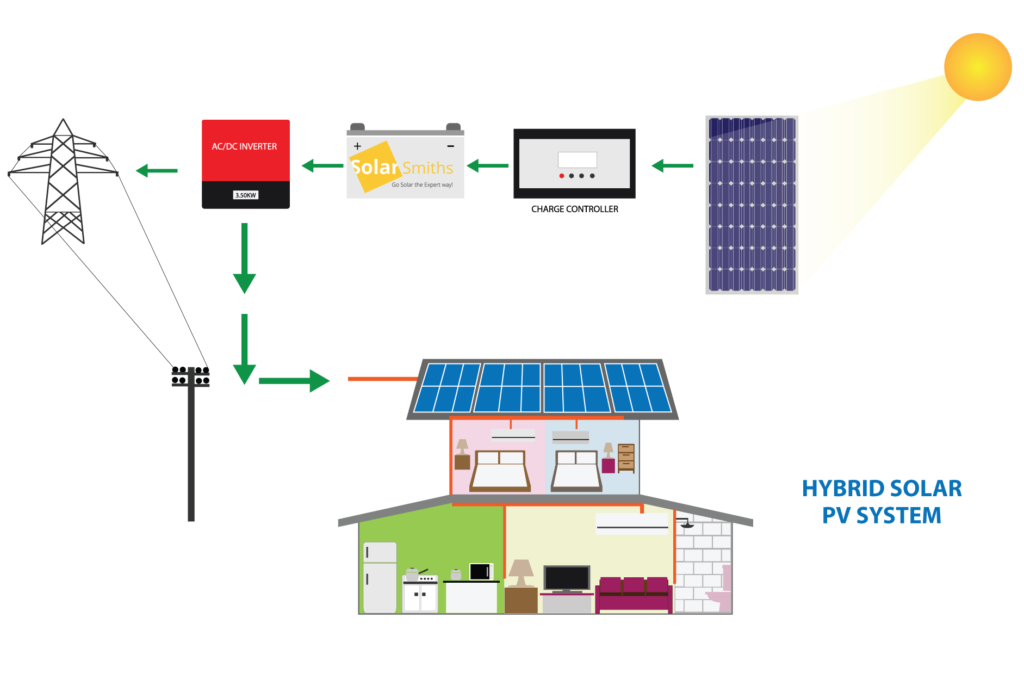
Which one is the best for you?
It’s very important to understand how each system works before you make a decision. All systems are different, so the right one for you will probably be determined by two main factors: your personal preferences and your budget. Here are some factors that you should consider when deciding between on-grid and off-grid solar power:
-
Utility costs or savings: If utility costs or savings are your priority, then you should probably choose an on grid system – an on grid system is already connected to your electrical utility provider and uses their line of energy. This means that you’ll get a bill from your utility provider for the power you use, but it’s still going to be cheaper than if you were to buy your own renewable energy. In some states, on-grid solar power systems are even eligible for incentives!
However, off-grid systems can provide you with a lot of savings, especially at night when you’re not using electricity. With an off-grid system there is no need to pay the full electric rate – say goodbye to high rates! Additionally, solar power can prevent any future electricity rate hikes as well. Of course it’ll vary depending on price fluctuations and other factors. But with an off-grid system, you’ll always be able to access the energy you need.
-
Noise and pollution: This is a very important factor when it comes to solar power grids. If you have noise and pollution concerns, then an on grid system might be for you. An on grid system harnesses the sun’s energy from your existing electrical utility line, so you won’t have the same noise or pollution problems as a completely off-grid system would use.
-
Maintenance: If you’re not comfortable doing maintenance on solar panels, then an off-grid system might be for you. An off-grid system completely powers your home or business using the sun’s energy, so no electrical maintenance should be required. Just make sure that they are in good health as there is no back-up in the case of a power outage or grid failure.
-
If you want to add solar panels: If you want to add solar panels to your off-grid system at a later date, then an off-grid system might be for you. If you don’t mind the expense of an extra electrical connection, then this option could work out best for you. You can connect the new panels on top of your existing system if you like, just make sure your existing solar panels are in good health otherwise they won’t charge up again!
-
Energy demand: Another important factor when it comes to deciding between on-grid and off-grid systems is energy demand. If you live in a place where you use a lot of energy, then you may want to consider an off-grid system. This is perfect for when you need energy a lot – say, if there are several devices running at the same time or if your appliances are very energy intensive. The more power demand that you have, the more off-grid solar panels can save.
Conclusion
Solar power grids are a great alternative to traditional grid-connected systems, but you won’t get started until you have a thorough knowledge of all the pros and cons. Don’t worry if you don’t know how to install one, there are companies that can do the work for you!
Don’t worry if you don’t know how to install one, Agarawalla Automobiles can do the work for you!
Reach Us:
🏢 Agarawalla Automobiles
📍 Januganj, Near Reliance Petrol Pump, Balasore, 756001
🤙 7077918219 / 9437055563
🌐 www.agarawalla.com
🏃♂️ VISIT TODAY FOR DEMO

